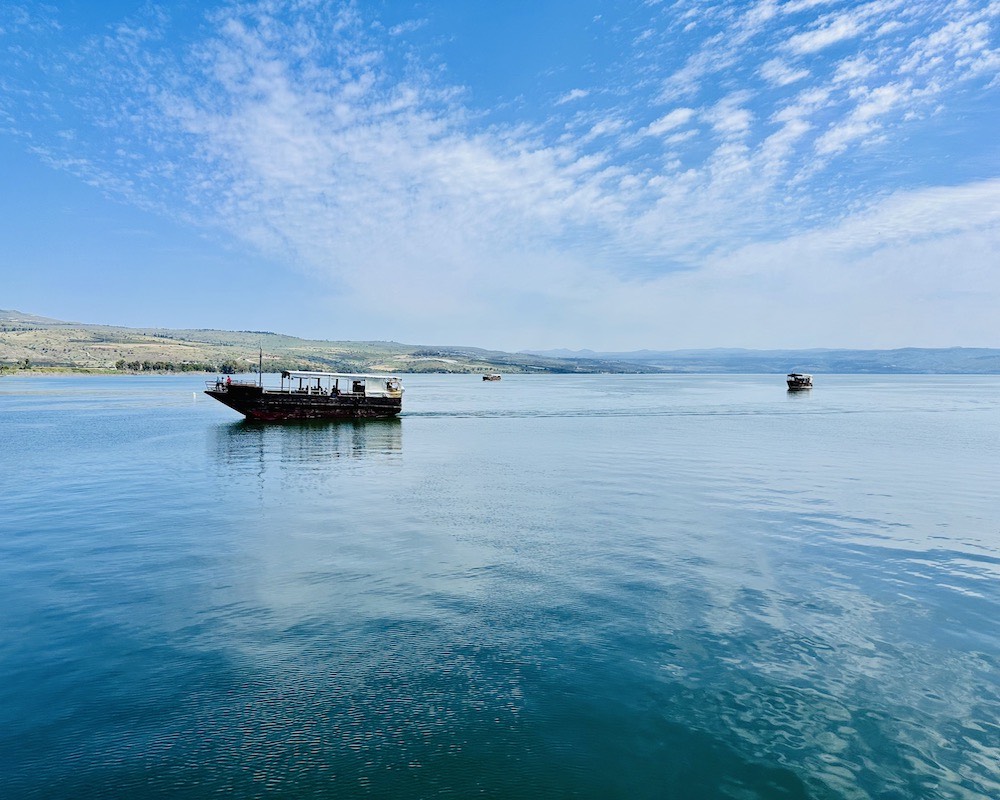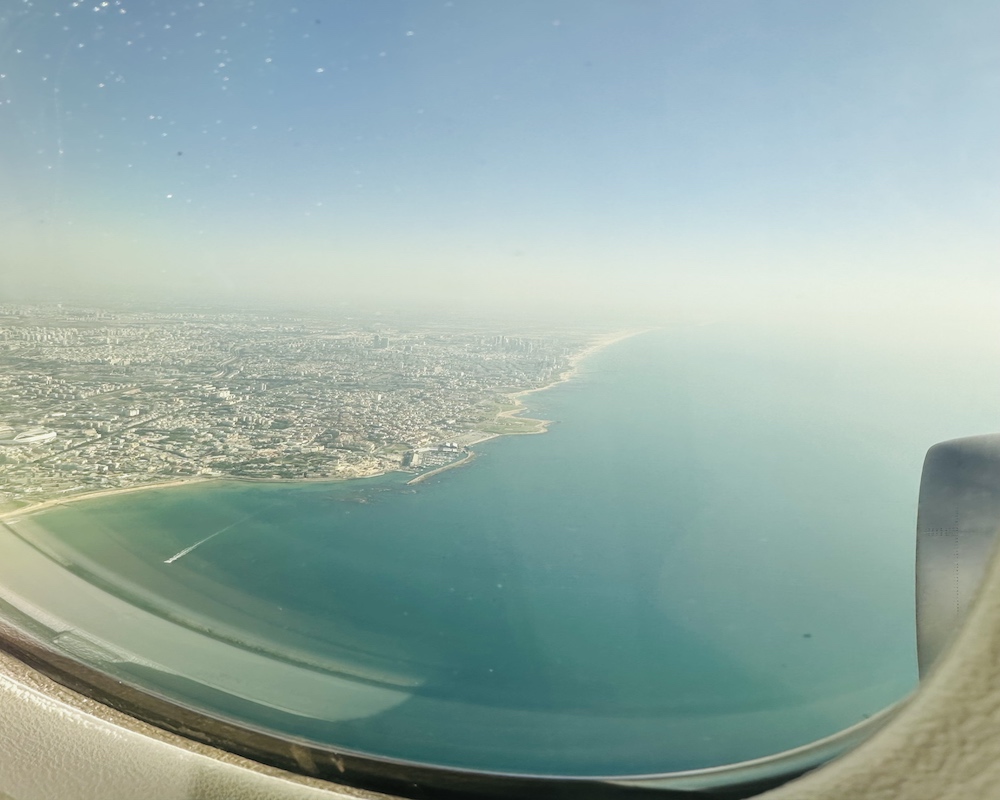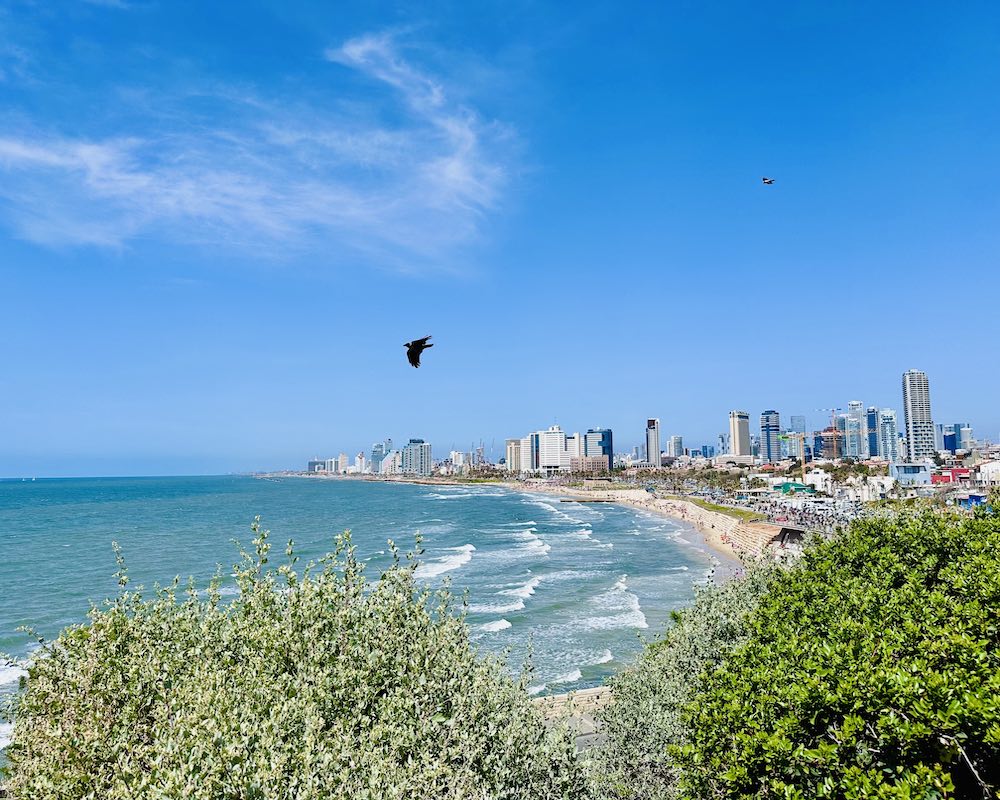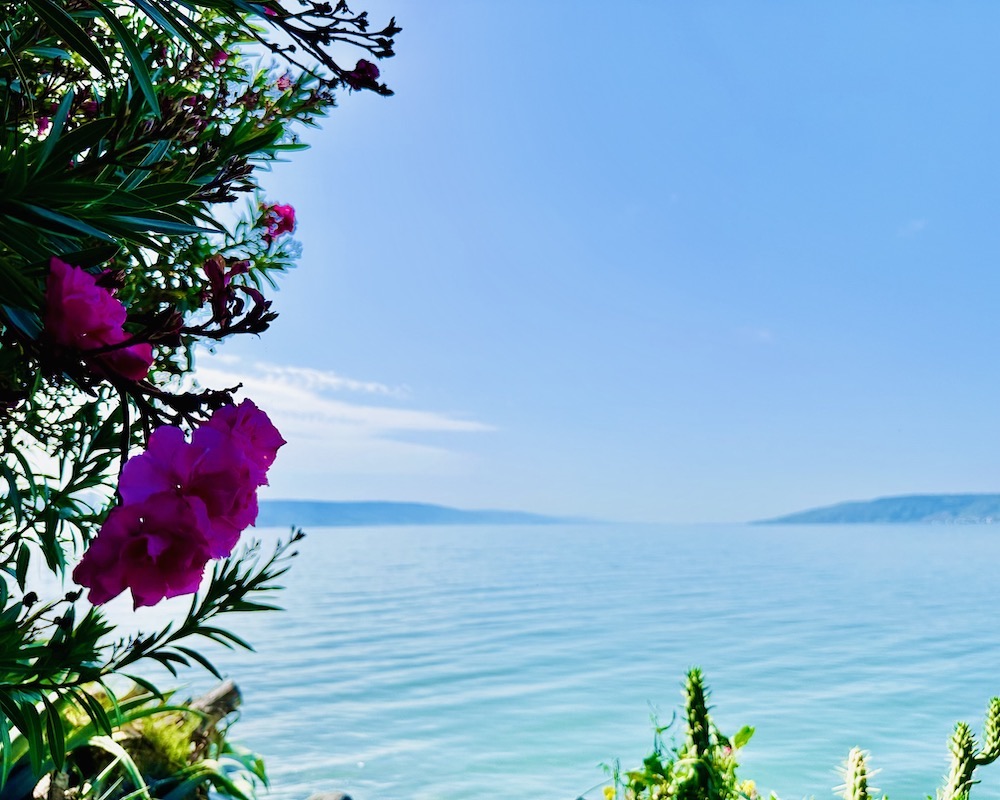
Whether you’re planning a trip to Israel in the near future or just dreaming of going one day, thinking of all the “must do” experiences can be overwhelming. There is so much! If you’re just not sure where to start, though, you’re in luck. Here is the ultimate Israel bucket list for all the essential things you want to see and do.
Hit the Beach in Tel Aviv
How many of the world’s major cities also feature a beach? Not many! Located on the shores of the Mediterranean Sea, Tel Aviv has the best of both worlds: A modern, urban city and a picture-perfect ocean. Spend your time catching some sun on the sand, or for the more adventuresome among us, try your hand at surfing, jet skiing, or parasailing.
Explore Caesarea National Park
Speaking of hanging out on the Mediterranean shore, just north of Tel Aviv is Caesarea National Park, known for its Roman aqueduct, Roman theatre, and Herodian hippodrome. In addition to its Roman history, it’s also important to Christians, as Paul was imprisoned here before being sent to trial in Rome.
Float in the Dead Sea
The saying is “sink or swim,” but neither is possible in the Dead Sea. You’ll simply float, since this is some of the saltiest water on planet Earth. It’s also one of the lowest, at 434 meters (1,125 feet) below sea level. Its mineral- and nutrient-rich mud has been known for its healing powers for millennia, and you can soak it all in on your trip to Israel (or Jordan, just on the other side).
Hike Up Masada
Some say you should take the cable car. We say that’s up to you. Either way, the views on the way up and back down are pretty epic. This is an important site in Jewish history, so definitely tour the fortress at the top as well. The hike is just over a mile one-way, and involves 1,000 steps, but it’s something Jewish adolescents and their families do at least once in the lives. (And you can take the cable car down if you like, no judgement here.)
Get the View from the Mount of Olives
Speaking of views, this is the best place for a view of Jerusalem. It’s a holy site for Jews, Christians, and Muslims alike, as is Jerusalem. It’s within walking distance of the Old City of Jerusalem, and has been used as a Jewish cemetery for over 3,000 years, because this is the place where Jews believe the resurrection will begin, and those buried here will be resurrected first.
This site is important to Cheistians because this is where the Bible tells us in Acts 1:11 that Jesus ascended into Heaven. It is important to Muslims for the same reason, and because they believe the Mount of Olives is the site where the holy Kaaba will be reunited with its sister rock Al Haram Ash Sharif, or the Temple Mount. They also believe there will be a bridge of seven arches here that connects the Mount of Olives to the Temple Mount, and the righteous will walk across it to Heaven, while the unrighteous will fall off into Hell.
Hike into the Valley of Elah
The Valley of Elah is almost like a secret spot. It doesn’t make its way on to many Israel itineraries, as there is not a synagogue, church, or mosque here to mark the site. What site, you ask? This is the site of the David and Goliath battlefield. You can take in the view from Tel Azeka (where some tour groups stop for a brief visit), or you can take more time and hike down into the valley itself. You can even see the stream where David selected five smooth stones as his weapons of choice.
Explore Jericho
Known as the oldest city in the world, Jericho is an important archaeological site in the West Bank. It’s also one of the most well-known biblical sites in the Old Testament for Jews, Christians, and Muslims. The fall of Jericho happened in Joshua chapter 6, after God had told the Israelites to march around every day for seven days. The biblical account also features Rahab, a prostitute. Because she helped the Israelite spies in Jericho, she and her entire family were saved, and she is one of five women mentioned in the lineage of Jesus (Matthew 1:1-17).
See the Dead Sea Scrolls
The Dead Sea Scrolls were discovered in Qumran, near the Dead Sea, but several of them are now on display at the Israel Museum in Jerusalem. The scrolls are the oldest-known copies of the Old Testament, or Hebrew Bible, with the exception of the book of Esther. They are housed in the Shrine of the Book, which was made to look like a cave, as the scrolls were discovered in a cave.
Visit Jesus’ Baptismal Site
East of Jerusalem, on the Israeli-Jordanian border, deep in the West Bank and surrounded by landmines (not where you’ll be driving or walking–don’t worry) is Qasr al-Yahud. This is the site where John the Baptist baptized Jesus. It’s heavily guarded because the Jordan River here is literally the border, but Christians come here every day to see where it happened, and some even choose to be baptized here as Jesus was.
This site pulls double duty, though. This is also the site where the Israelites walked across the Jordan River into the Promised Land after wandering in the desert for 40 years. This makes it a significant site not just for Christians, but for Jews and Muslims as well.
Go to the Mount of Olives and the Garden of Gethsemane
The Mount of Olives is also a sacred site for Jews, Christians, and Muslims. Jesus went to the Mount of Olives often to pray, and both Judaism and Islam believe the Mount of Olives will be instrumental in the final judgement. As a bonus, it also has the best, most iconic view of the Old City of Jerusalem, so get your camera ready.
Just down the mountain, toward Jerusalem, is the Garden of Gethsemane. This is a particularly important site to Christians because it was here that Jesus prayed that God would find another way to save humanity without His death. This is also the place where he was betrayed by Judas and arrested. While you’re in the Garden of Gethsemane, it may also be meaningful to read Matthew 26:36-46 and/or Mark 14:32-42 for full context and imagine what it must have been like for Him.
Take a Boat Out on the Sea of Galilee
One of the most well-known miracles in Jesus life was the time he walked on the water. That happened on the Sea of Galilee, so for many Christians, going out on the water is an important bucket list item. Whether you’re here with a big group on one of the larger ships, going as authentic as possible in one of the wooden boats, or going it solo in a zodiac (with a local sailor, of course), being on the water where Jesus walked will be an experience you won’t want to miss.
Bonus: Don’t miss the “Jesus Boat” at the Yigal Allon Center while you’re out there–while it’s likely not Jesus’ actual boat, it is a first century fishing boat, just like one he would have used in real life.
Experience Shabbat
Shabbat is the day of rest for Jews all over the world, but it’s observed nation-wide in Israel. Everything from restaurants to museums shut down for the day. This could be an inconvenience for visitors, or it could be an opportunity to experience a unique aspect of Israel. Some restaurants offer Shabbat meals to visitors who want to learn more about it. Or, if you prefer, you can take time to reflect on your trip and rest up, maybe at the beach in Tel Aviv or at the Dead Sea.
If you want more, check out our Israel Travel Podcast all about How to Create Your Perfect Israel Itinerary on Apple Podcast and Spotify!




